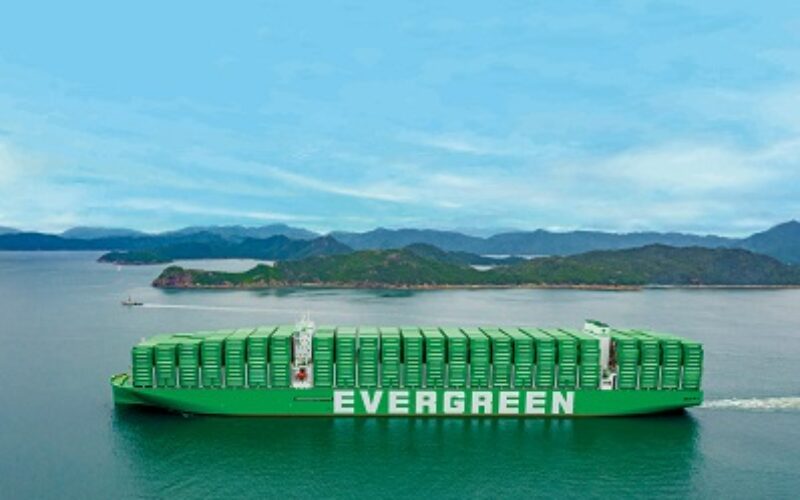Evergreen awarded double certification for GHG emission inventory
Evergreen Marine Corp. has finished a systematic inspection and computation of greenhouse gas (GHG) emissions inventory for its commercial activities in Taiwan.

In late July, the British Standards Institution (BSI) approved the survey methodology and results in accordance with ISO14064-1:2018 and the GHG Protocol.
Governments throughout the globe have established carbon reduction targets in response to the impact of climate change and the international community’s worries about sustainability issues.
The Taiwanese Financial Supervisory Commission (FSC) also released its ‘Sustainable Development Roadmap for listed corporations’ in March of this year, mandating corporations to reveal their GHG mission inventories in phases.
Listed companies such as Evergreen Marine, with a capital of more than NTD10 billion ($315 million) must complete the survey of their GHG emission sources and inventories next year, and obtain third-party verification by 2024.
Furthermore, surveys and verification of its subsidiaries are due in 2025 and 2027, respectively.
Evergreen Marine developed a task force responsible for inspecting its GHG inventory and designing a carbon footprint platform in order to comply with relevant legislation and satisfy diverse information requests concerning GHG emissions from customers and other stakeholders.
The company is reportedly using advanced technologies to build a fleet of eco-friendly vessels, which comply with the International Maritime Organization (IMO)’s Energy Efficiency Existing Ship Index (EEXI) regulations and enable best fuel efficiency, and continues to replace old ships with new ones.
At present, 80 per cent of ships in its operating fleet are less than 10 years old. This young fleet allows the carrier to operate with maximum efficiency in providing transportation service with lower energy consumption.
Contributing to this efficiency, Evergreen’s investment in the 7th Container Center in Kaohsiung is expected to come to fruition with operations beginning in the second half of next year.
The terminal will eventually replace present activities at the 4th and 5th Container Centres’ independent transit hubs, which are located in distinct areas of the port.
Consolidating activities at the brand new transit hub will significantly minimise shunting of transshipments between the two ports and remove carbon emissions associated with such transportation.
Evergreen has set proactive carbon reduction targets based on its 2008 carbon emissions levels, including a 50 per cent reduction in CO2 emission rate (g/TEU-km) by 2030, a 70 per cent reduction in emission rate by 2050, and a 50 per cent reduction in overall emission volumes by 2050.
In June 2023, oil company, ExxonMobil, and Evergreen Line successfully completed a commercial marine biofuel oil bunkering in the Port of Singapore.

